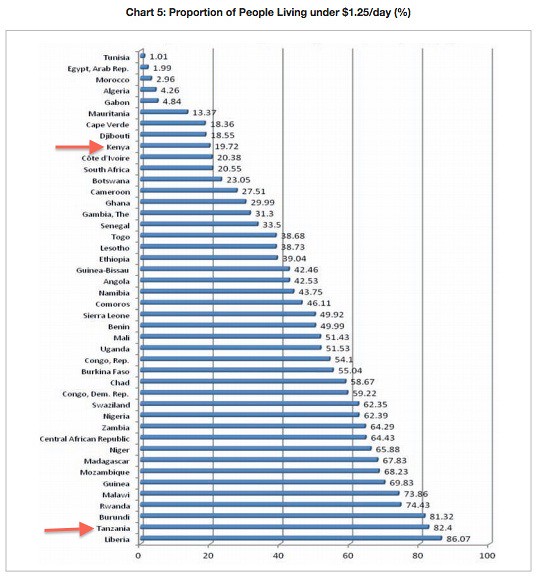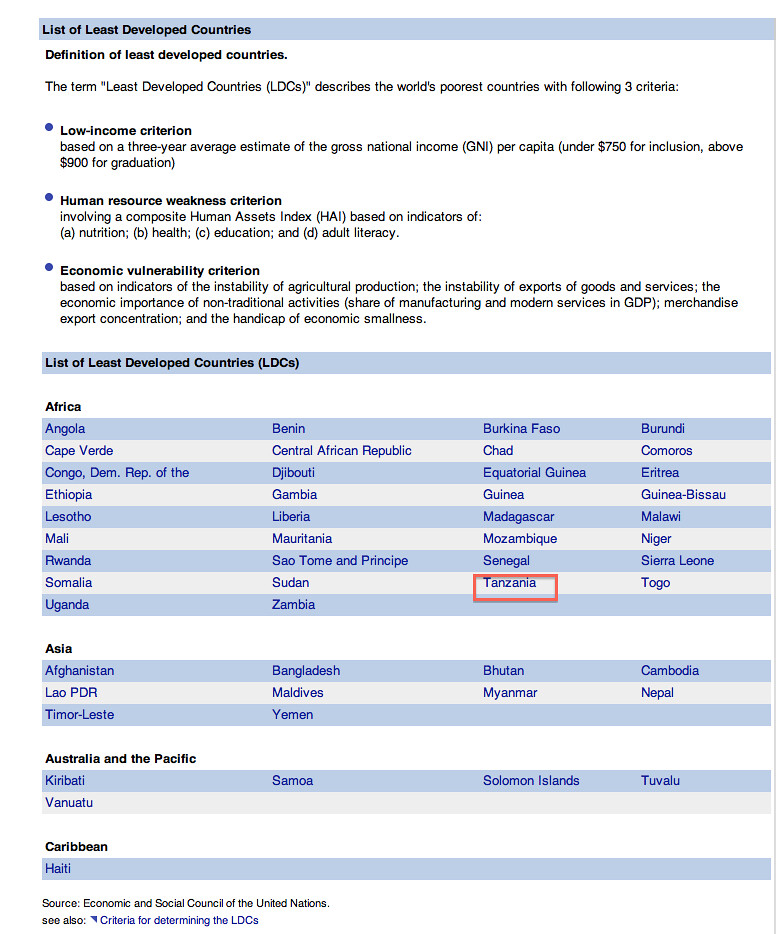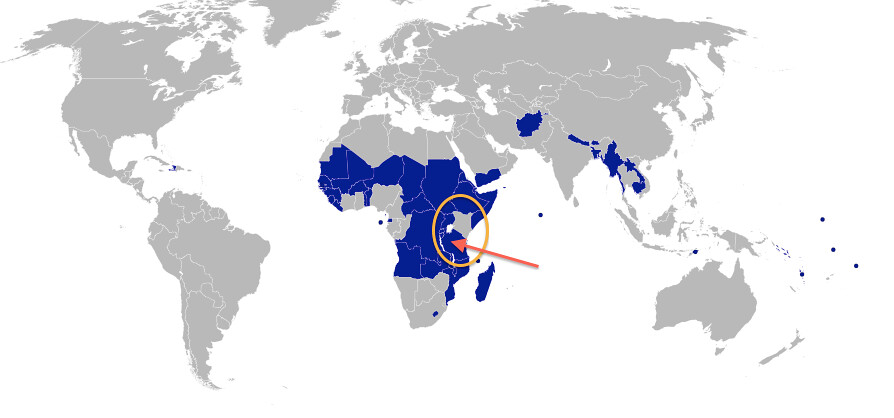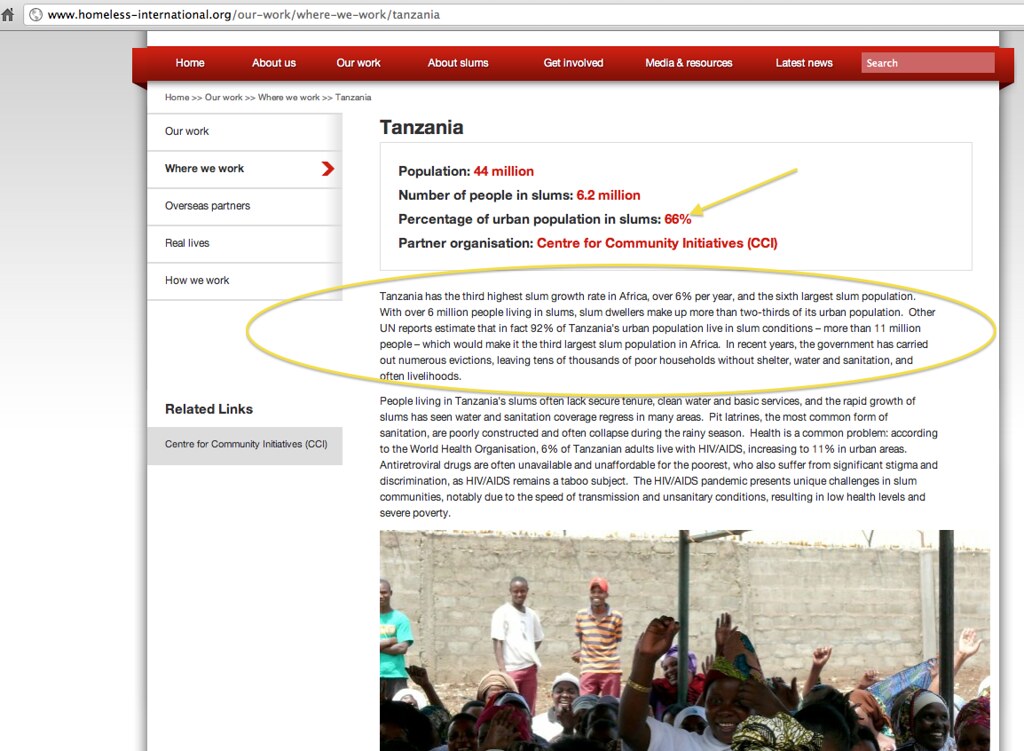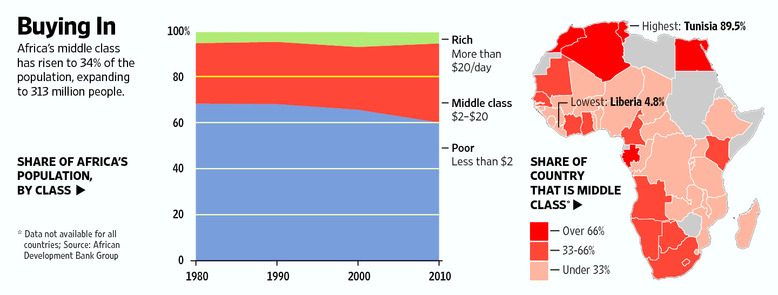Kabaridi
JF-Expert Member
- Nov 15, 2011
- 2,023
- 534
Rural poverty in Kenya
Poverty seems a paradox in a country that has one of the best-developed economies in eastern Africa. Kenya has relatively advanced agricultural and industrial sectors and substantial foreign exchange earnings from agricultural exports and tourism. Yet it is a low-income country and ranks 128th among 169 countries in the United Nations Development Programmes Human Development Index, which measures development in terms of life expectancy, educational attainment and standard of living.
About 79 per cent of Kenyas population lives in rural areas and relies on agriculture for most of its income. Nearly half the countrys 40 million people are poor, or unable to meet their daily nutritional requirements. The vast majority of poor people live in rural areas. Although in some respects conditions have improved since the early 1980s, the poverty rate has remained steady at about 48 per cent.
The rural economy depends mainly on smallholder subsistence agriculture, which produces 75 per cent of total agricultural output. Most Kenyans live in areas that have good to high potential for agriculture, comprise about 18 per cent of the countrys territory and are located in the centre and west. However population density in high-potential areas is more than six times the countrys average of 55 people per km2 and constitutes an overwhelming pressure on resources. The poorest communities are found in the sparsely populated arid zones, mainly in the north. Kenyas poor rural people include:
There are strong linkages between poverty and environmental degradation, particularly poor water management, soil erosion, declining soil fertility and land degradation. In addition, the effects of climate change are undermining an already fragile resource base and have contributed to declining agricultural yields over the past decades. In recent years, drought has become a perennial problem in parts of Kenya. Episodes in 2009 and 2011 generated food emergencies, while flooding in 2010 affected parts of the country severely.
Tribal affinities are a source of considerable conflict within Kenya, with the diverse ethnic groups competing since independence for land, financial resources and political power.
HIV/AIDS is most prevalent among young and middle-aged Kenyans, the most productive segment of the population. The illness leaves orphans and households headed by women that are even more vulnerable to poverty. The burden of waterborne diseases, malaria and HIV/AIDS weighs heavily on both the country and Kenyan families, affecting income, food security and development potential. Life expectancy fell to 46 years in 2006, but has since risen to over 55.
Rural women are a particularly vulnerable category because they do not have equal access to social and economic assets. Subsistence farming is the primary and often the only source of livelihood for about 70 per cent of these women.
source: here
Poverty seems a paradox in a country that has one of the best-developed economies in eastern Africa. Kenya has relatively advanced agricultural and industrial sectors and substantial foreign exchange earnings from agricultural exports and tourism. Yet it is a low-income country and ranks 128th among 169 countries in the United Nations Development Programmes Human Development Index, which measures development in terms of life expectancy, educational attainment and standard of living.
About 79 per cent of Kenyas population lives in rural areas and relies on agriculture for most of its income. Nearly half the countrys 40 million people are poor, or unable to meet their daily nutritional requirements. The vast majority of poor people live in rural areas. Although in some respects conditions have improved since the early 1980s, the poverty rate has remained steady at about 48 per cent.
The rural economy depends mainly on smallholder subsistence agriculture, which produces 75 per cent of total agricultural output. Most Kenyans live in areas that have good to high potential for agriculture, comprise about 18 per cent of the countrys territory and are located in the centre and west. However population density in high-potential areas is more than six times the countrys average of 55 people per km2 and constitutes an overwhelming pressure on resources. The poorest communities are found in the sparsely populated arid zones, mainly in the north. Kenyas poor rural people include:
- smallholder farmers
- herders
- farm labourers
- unskilled and semi-skilled workers
- households headed by women
- people with disabilities
- AIDS orphans
There are strong linkages between poverty and environmental degradation, particularly poor water management, soil erosion, declining soil fertility and land degradation. In addition, the effects of climate change are undermining an already fragile resource base and have contributed to declining agricultural yields over the past decades. In recent years, drought has become a perennial problem in parts of Kenya. Episodes in 2009 and 2011 generated food emergencies, while flooding in 2010 affected parts of the country severely.
Tribal affinities are a source of considerable conflict within Kenya, with the diverse ethnic groups competing since independence for land, financial resources and political power.
HIV/AIDS is most prevalent among young and middle-aged Kenyans, the most productive segment of the population. The illness leaves orphans and households headed by women that are even more vulnerable to poverty. The burden of waterborne diseases, malaria and HIV/AIDS weighs heavily on both the country and Kenyan families, affecting income, food security and development potential. Life expectancy fell to 46 years in 2006, but has since risen to over 55.
Rural women are a particularly vulnerable category because they do not have equal access to social and economic assets. Subsistence farming is the primary and often the only source of livelihood for about 70 per cent of these women.
source: here
